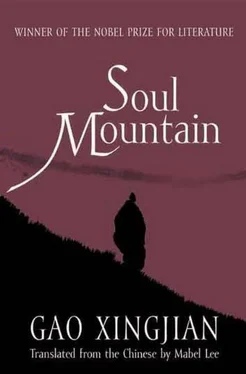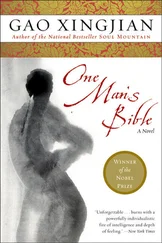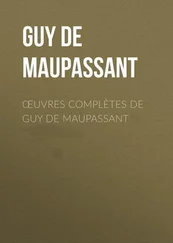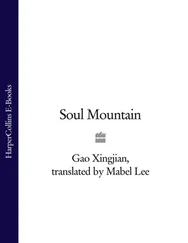Such is the inexplicable nature of humankind's behaviour, and man's knowledge of his self is even harder to comprehend. Literature is simply man focusing his gaze on his self and while he does a thread of consciousness which sheds light on this self begins to grow.
To subvert is not the aim of literature, its value lies in discovering and revealing what is rarely known, little known, thought to be known but in fact not very well known of the truth of the human world. It would seem that truth is the unassailable and most basic quality of literature.
The new century has already arrived. I will not bother about whether or not it is in fact new but it would seem that the revolution in literature and revolutionary literature, and even ideology, may have all come to an end. The illusion of a social utopia that enshrouded more than a century has vanished and when literature throws off the fetters of this and that — ism it will still have to return to the dilemmas of human existence. However the dilemmas of human existence have changed very little and will continue to be the eternal topic of literature.
This is an age without prophecies and promises and I think it is a good thing. The writer playing prophet and judge should also cease since the many prophecies of the past century have all turned out to be frauds. And there is no need to manufacture new superstitions about the future, it is much better to wait and see. It would be best also for the writer to revert to the role of witness and strive to present the truth.
This is not to say that literature is the same as a document. Actually there are few facts in documented testimonies and the reasons and motives behind incidents are often concealed. However, when literature deals with the truth the whole process from a person's inner mind to the incident can be exposed without leaving anything out. This power is inherent in literature as long as the writer sets out to portray the true circumstances of human existence and is not just making up nonsense.
It is a writer's insights in grasping truth that determine the quality of a work and word games or writing techniques cannot serve as substitutes. Indeed, there are numerous definitions of truth and how it is dealt with varies from person to person but it can be seen at a glance whether a writer is embellishing human phenomena or making a full and honest portrayal. The literary criticism of a certain ideology turned truth and untruth into semantic analysis, but such principles and tenets are of little relevance in literary creation.
However whether or not the writer confronts truth is not just an issue of creative methodology, it is closely linked to his attitude towards writing. Truth when the pen is taken up at the same time implies that one is sincere after one puts down the pen. Here truth is not simply an evaluation of literature but at the same time has ethical connotations. It is not the writer's duty to preach morality and while striving to portray various people in the world he also unscrupulously exposes his self, even the secrets of his inner mind. For the writer truth in literature approximates ethics, it is the ultimate ethics of literature.
In the hands of a writer with a serious attitude to writing even literary fabrications are premised on the portrayal of the truth of human life, and this has been the vital life force of works that have endured from ancient times to the present. It is precisely for this reason that Greek tragedy and Shakespeare will never become outdated.
Literature does not simply make a replica of reality but penetrates the surface layers and reaches deep into the inner workings of reality; it removes false illusions, looks down from great heights at ordinary happenings, and with a broad perspective reveals happenings in their entirety.
Of course literature also relies on the imagination but this sort of journey in the mind is not just putting together a whole lot of rubbish. Imagination that is divorced from true feelings and fabrications that are divorced from the basis of life experiences can only end up insipid and weak, and works that fail to convince the author himself will not be able to move readers. Indeed, literature does not only rely on the experiences of ordinary life nor is the writer bound by what he has personally experienced. It is possible for the things heard and seen through a language carrier and the things related in the literary works of earlier writers all to be transformed into one's own feelings. This too is the magic of the language of literature.
As with a curse or a blessing language has the power to stir body and mind. The art of language lies in the presenter being able to convey his feelings to others, it is not some sign system or semantic structure requiring nothing more than grammatical structures. If the living person behind language is forgotten, semantic expositions easily turn into games of the intellect.
Language is not merely concepts and the carrier of concepts, it simultaneously activates the feelings and the senses and this is why signs and signals cannot replace the language of living people. The will, motives, tone and emotions behind what someone says cannot be fully expressed by semantics and rhetoric alone. The connotations of the language of literature must be voiced, spoken by living people, to be fully expressed. So as well as serving as a carrier of thought literature must also appeal to the auditory senses. The human need for language is not simply for the transmission of meaning, it is at the same time listening to and affirming a person's existence.
Borrowing from Descartes, it could be said of the writer: I say and therefore I am. However, the I of the writer can be the writer himself, can be equated to the narrator, or become the characters of a work. As the narrator-subject can also be he and you, it is tripartite. The fixing of a key-speaker pronoun is the starting point for portraying perceptions and from this various narrative patterns take shape. It is during the process of searching for his own narrative method that the writer gives concrete form to his perceptions.
In my fiction I use pronouns instead of the usual characters and also use the pronouns I, you, and he to tell about or to focus on the protagonist. The portrayal of the one character by using different pronouns creates a sense of distance. As this also provides actors on the stage with a broader psychological space I have also introduced the changing of pronouns into my drama.
The writing of fiction or drama has not and will not come to an end and there is no substance to flippant announcements of the death of certain genres of literature or art.
Born at the start of human civilisation, like life, language is full of wonders and its expressive capacity is limitless. It is the work of the writer to discover and develop the latent potential inherent in language. The writer is not the Creator and he cannot eradicate the world even if it is too old. He also cannot establish some new ideal world even if the present world is absurd and beyond human comprehension. However he can certainly make innovative statements either by adding to what earlier people have said or else starting where earlier people stopped.
To subvert literature was Cultural Revolution rhetoric. Literature did not die and writers were not destroyed. Every writer has his place on the bookshelf and he has life as long as he has readers. There is no greater consolation for a writer than to be able to leave a book in humankind's vast treasury of literature that will continue to be read in future times.
Literature is only actualised and of interest at that moment in time when the writer writes it and the reader reads it. Unless it is pretence, to write for the future only deludes oneself and others as well. Literature is for the living and moreover affirms the present of the living. It is this eternal present and this confirmation of individual life that is the absolute reason why literature is literature, if one insists on seeking a reason for this huge thing that exists of itself.
Читать дальше
Конец ознакомительного отрывка
Купить книгу












